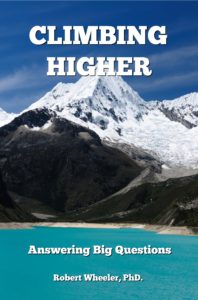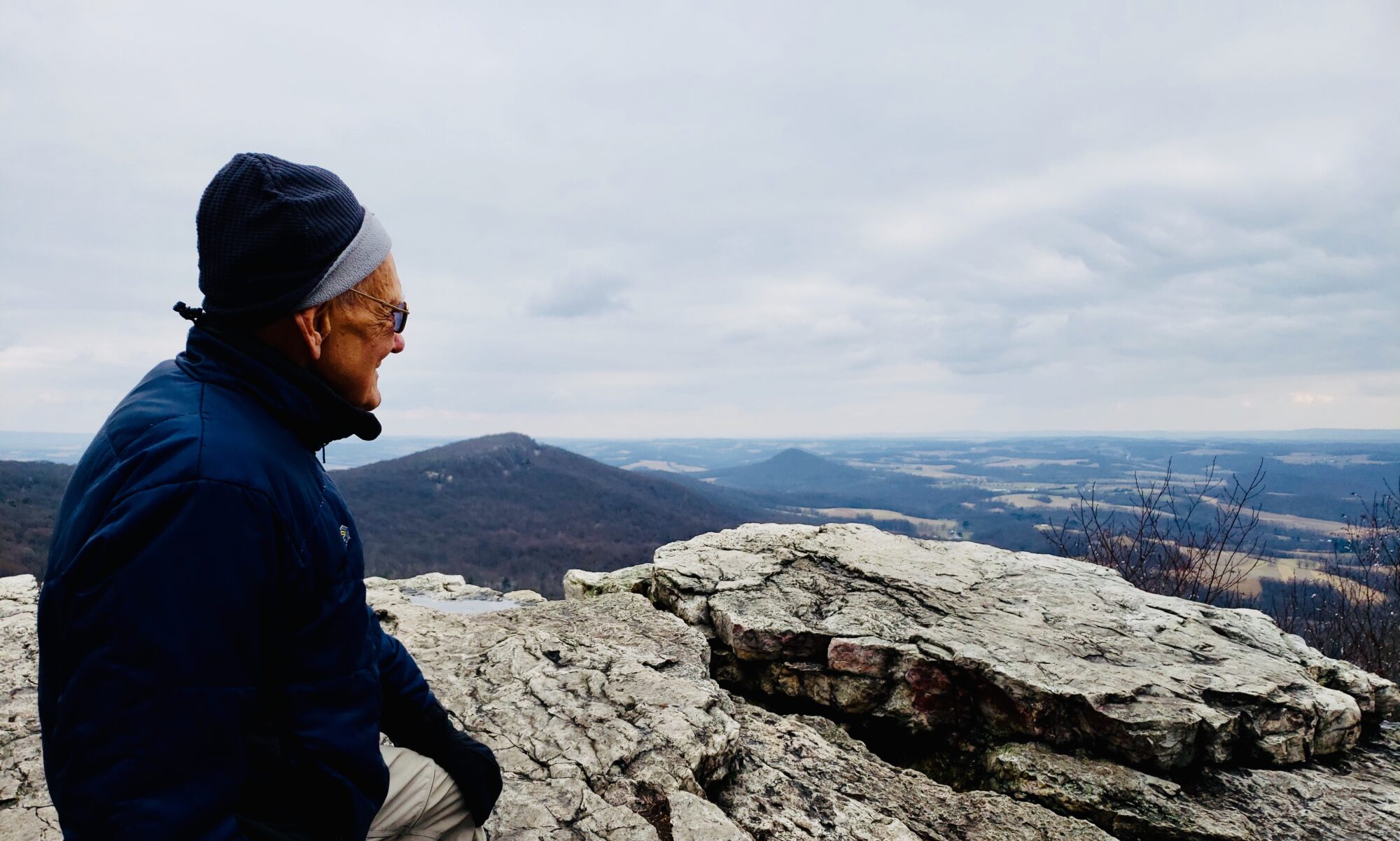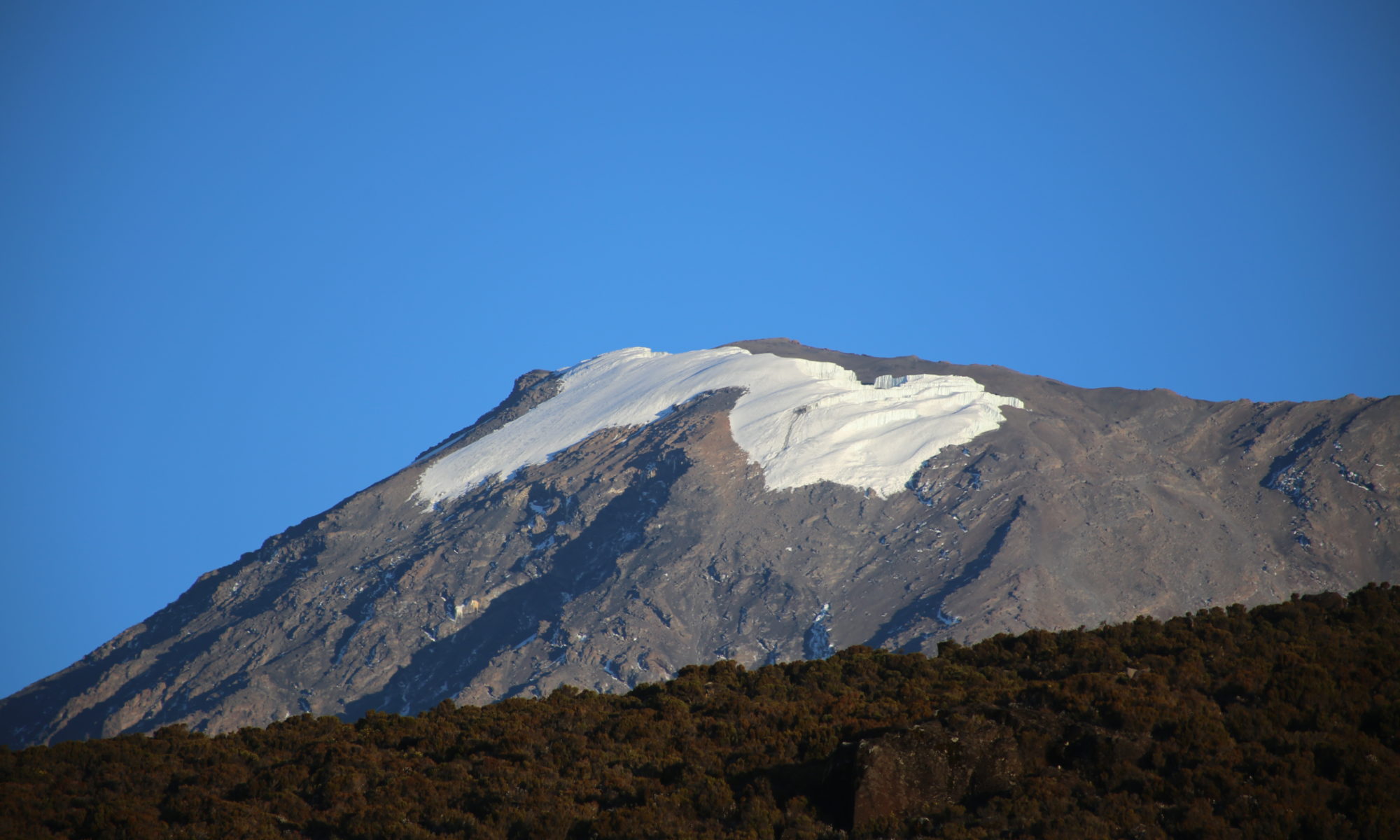Picture above is Mt Kilimanjaro (Africa). Picture below is Mt Blanca (Bolivia).
Climbing Higher: Answering big Questions

Not everyone climbs mountains, however stories of climbing adventures provide insight into the adventure of life that we all share: overcoming obstacles in life and reaching out to something bigger and higher than immediate daily activities. History and psychology indicate that this is a strong human need that includes having a sense of meaning and purpose. Mountains can symbolize obstacles in meeting these needs, and experiences in climbing mountains provide a vehicle both actually and figuratively for exploring mechanisms and impacts involved. The book begins with a personal experience climbing Mount Fuji that nearly ended in disaster, with the question of why people do such things. Subsequent chapters alternate between mountain climbing experiences and research results about why people pursue difficult tasks. A bottom-up approach supports culminating proposals of spirituality as a universal personality trait, nognosticism that recognizes knowledge is limited, ecumenical humanism for religious tolerance, and the philosophy of pragmatic pluralism. For life to be meaningful and manageable, people need a sense of purpose and coherence that is best met by having belief in a higher transcendent realm while also having enough doubt about its nature or validity to pursue a quest for ultimate reality despite the great paradox.
You can get this book from all major retailers such as (click on the name): Amazon, Barnes and Noble, Books-a-Million, ThriftBooks.
What, Why, & How? Bottom-up Answers is a follow-on to the more comprehensive Climbing Higher and has the following theme:
At one time or another, most of us have wondered what is the reason for our exist ence. Why I am here struggling to make a living, to be comfortable and happy, and how best to do it? These basic questions usually get submerged because of more immediate questions about meeting daily needs, but they are still there in the recesses of the subconscious mind. There they can create a nebulous feeling of dissatisfaction or can boil up at an inconvenient time. Today’s media, politicians, and educators with their emphasis on consumerism, power, competition, and violence do little to address these basic questions. The author has spent 90 plus years growing from a scrawny kid to a gung-ho soldier to a research psychologist contemplating and researching these questions. This is about what he learned.
ence. Why I am here struggling to make a living, to be comfortable and happy, and how best to do it? These basic questions usually get submerged because of more immediate questions about meeting daily needs, but they are still there in the recesses of the subconscious mind. There they can create a nebulous feeling of dissatisfaction or can boil up at an inconvenient time. Today’s media, politicians, and educators with their emphasis on consumerism, power, competition, and violence do little to address these basic questions. The author has spent 90 plus years growing from a scrawny kid to a gung-ho soldier to a research psychologist contemplating and researching these questions. This is about what he learned.
It is available from all major book outlets such as (click on name): Amazon, Barns and Noble, ThriftBooks, Books-A-Million.
Survival of life is a follow-on book about the purpose and meaning of life.
This book is about the purpose of life, survival. Throughout human history this has bee n the most important and most fundamental issue. Our ancient ancestors thought a lot about this and developed explanations to make their efforts manageable and to provide other benefits such as support, morals, ethics, belongingness, and immortality. These explanations formed religions that continue to dominate societies; however, they have not kept up with modern experiences and research findings, and they have lost many of their benefits.
n the most important and most fundamental issue. Our ancient ancestors thought a lot about this and developed explanations to make their efforts manageable and to provide other benefits such as support, morals, ethics, belongingness, and immortality. These explanations formed religions that continue to dominate societies; however, they have not kept up with modern experiences and research findings, and they have lost many of their benefits.
Many of the current world’s problems would be alleviated if we once again thought about this fundamental issue, and if our media, politicians, and educators emphasized this topic rather than the current emphasis on consumerism, power, and violence.
Studies of history reveal a pattern of continuing development of nature. From the “big bang” when minute forces self-organized into atoms, then molecules, organisms, plants, animals, and humans. This pattern indicates a design and purpose of increasing complexity and sophistication that may develop life’s ability to survive the eschaton predicted by most religions and the ultimate global warming predicted by science.
Survival of Life was released July 2023 and is now available from all major book outlets such as (click on these names): Amazon, Barns and Noble, ThriftBooks, Books-A-Million.


I conceive this site contains some very good info for everyone :D. “Believe those who are seeking the truth doubt those who find it.” by Andre Gide.